Clockwork Orange, A (1971)
“If you need Pretty Polly — you take it.”
|
Synopsis: |
|
Genres, Themes, Actors, and Directors:
Response to Peary’s Review: Peary’s no-holds-barred reviews of A Clockwork Orange in GFTFF (and his Cult Movies 2 book) are incisive, compelling, and worth quoting at greater length. He notes that Burgess stated, “If we are going to love mankind, we will have to love Alex as a not unrepresentative member of it; it is preferable to have a world of violence undertaken in full awareness — violence chosen as an act of will — than a world conditioned to be good or harmless.” However, Peary points out that “the mankind Kubrick shows us is totally alien to us and not worthy of our love. And even before he undergoes the Ludovico treatment, Alex’s violent acts don’t seem to be made through free choice, but are reflexive, conditioned by past violence — he is already a clockwork orange (human on the outside, mechanized on the inside).” Ultimately, the “film’s strong, gratuitous violence is objectionable (as is the comical atmosphere when violence is being perpetrated), but the major reason the film can be termed fascistic is Kubrick’s heartless, super-intellectual, super-orderly, anti-septic, anti-human, anti-female, anti-sensual, anti-passion, anti-erotic treatment of its subject”, with “all emotional stimuli… lumped together as being harmful”, and “all art… pornographic”. In Cult Movies 2, Peary adds that “the film is like a Sunday sermon where the fellow up on the pulpit suddenly realizes there is no moral lesson that applies to his listeners… Kubrick [simply] teaches paranoid individuals… that you can’t cure the habitual thrill criminal”. He concludes his essay in this book by noting that “once Alex is arrested and the look of the film shifts away from dreamlike pop art, the picture becomes excruciatingly dull”. I’m essentially in agreement with Peary: I’ve avoided a re-watch of A Clockwork Orange for years, and don’t plan to revisit it again — but it’s infamous (and beloved) enough to warrant one-time viewing by film fanatics. (Meanwhile, the cinematography and sets are indeed memorable, as is Wendy Carlos’s synthesized score.) Be forewarned that some scenes are almost unbearably misogynistic and/or brutalizing; if our world is actually headed in this direction, we have reason to be very scared indeed. Redeeming Qualities and Moments:
Must See? Categories
(Listed in 1001 Movies You Must See Before You Die) Links: |
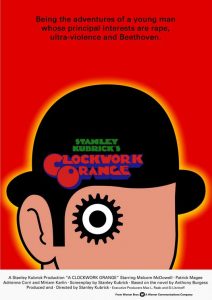
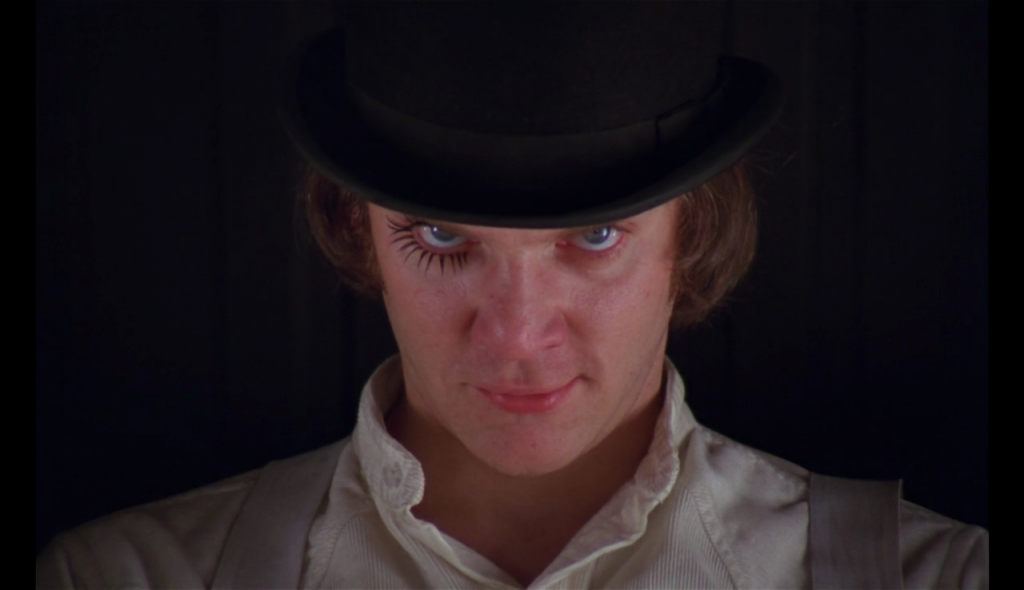
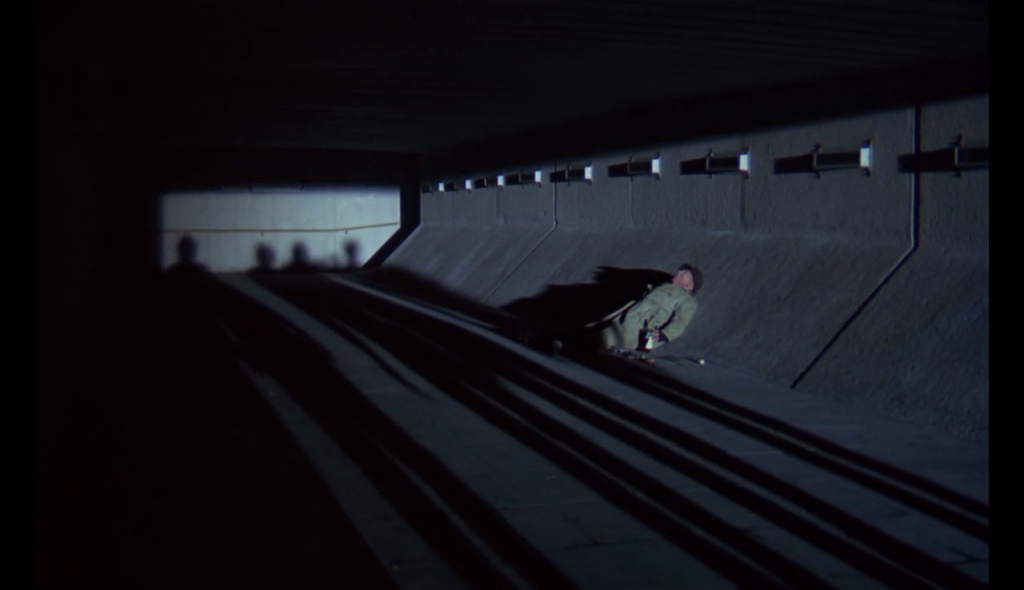
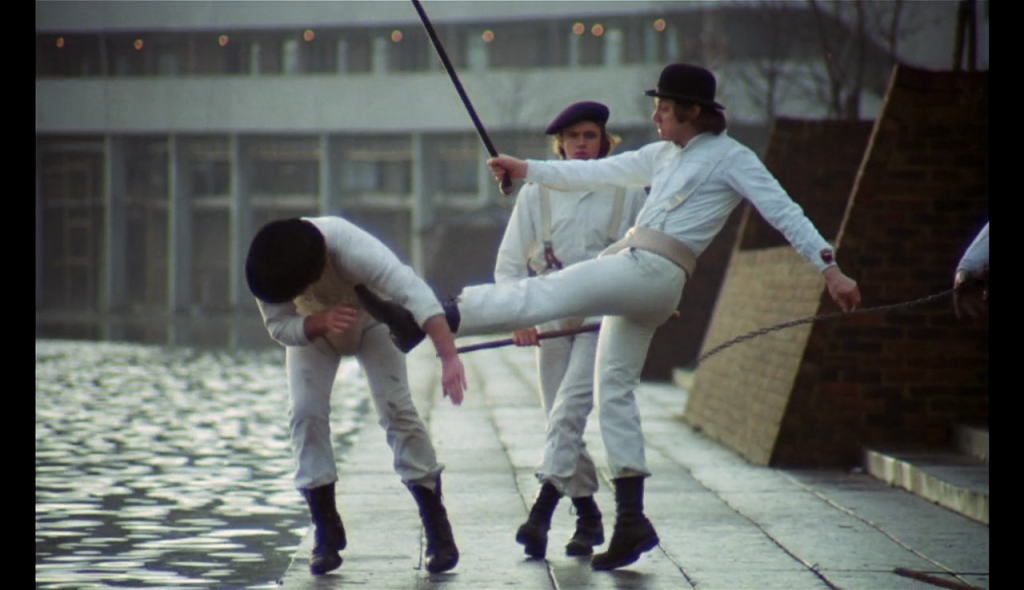
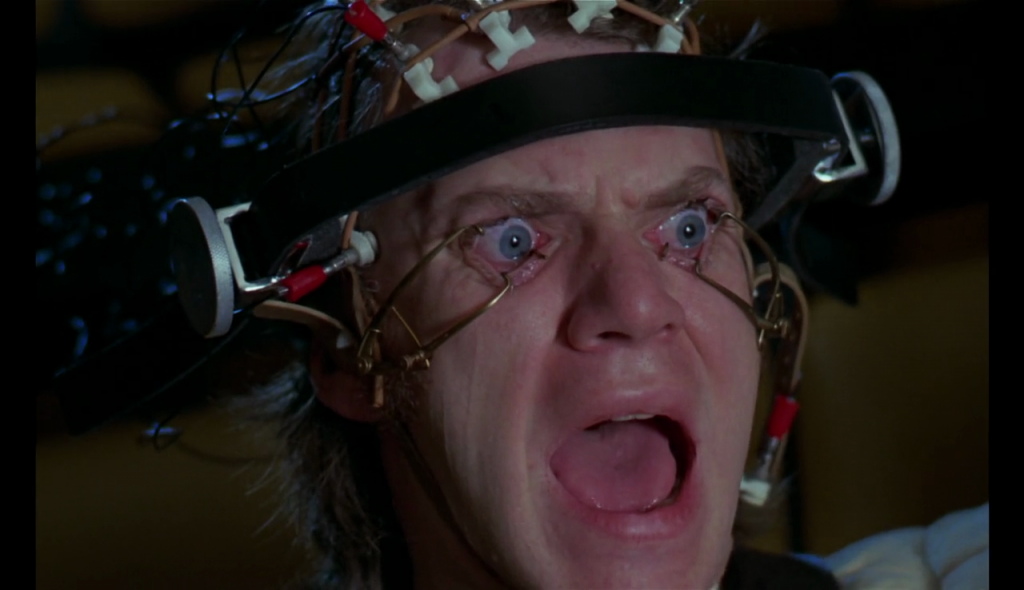
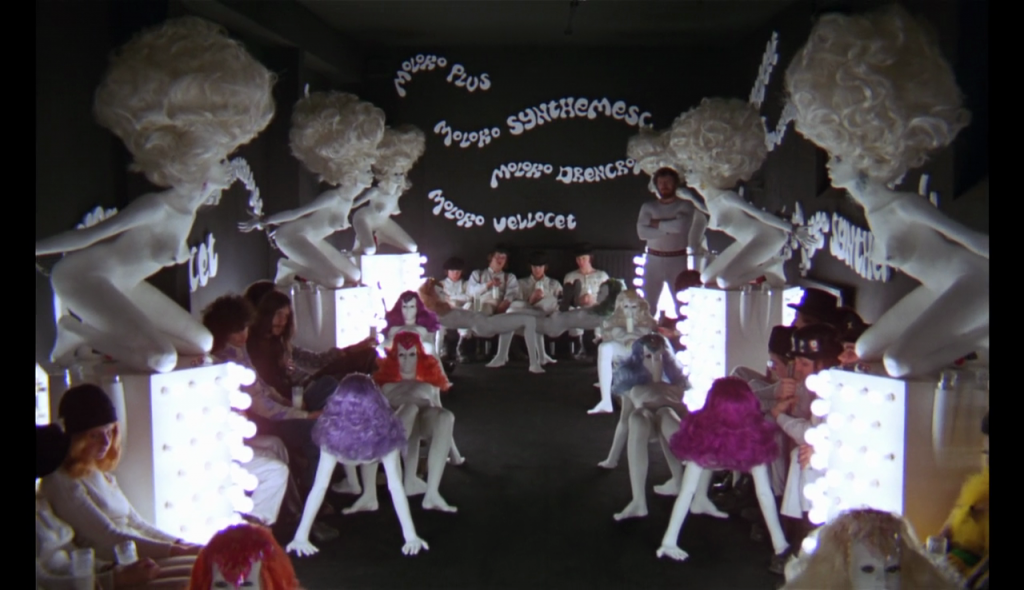
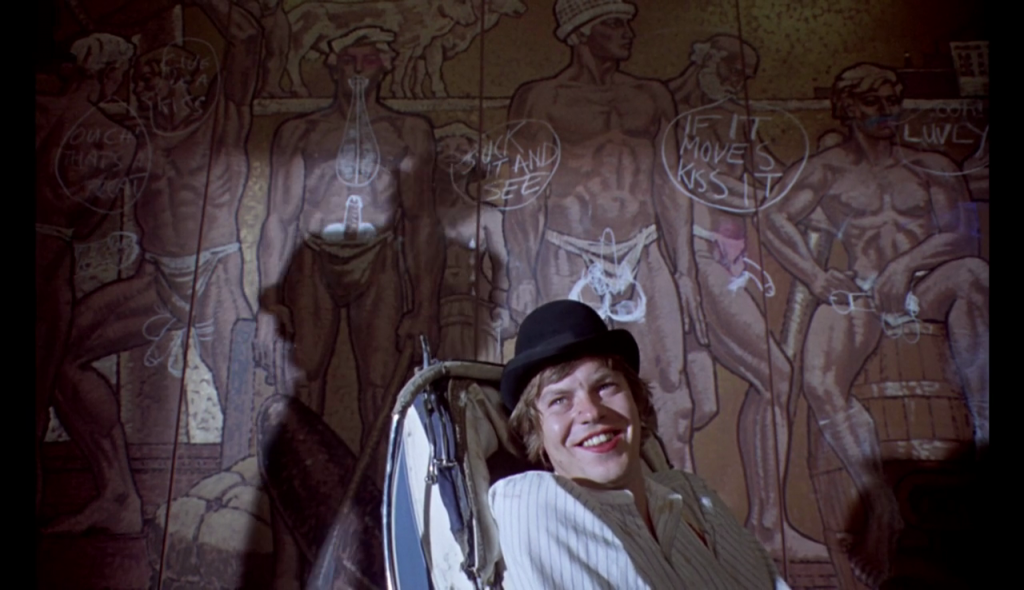
5 thoughts on “Clockwork Orange, A (1971)”
⭐️⭐️⭐️⭐️⭐️
A stunning dystopian scifi flick with fabulous direction, great performances, a superb script and an excellent score by Wendy Carlos. Not for the squeamish or easily offended.
‘ACO’ is widely considered a cult classic – so the average film fanatic is going to watch it either once or many times, regardless of this one man’s opinion – but I don’t think it’s must-see.
I saw the film on release (so I was 16; I made a bus trip into NYC to see it and was reading the novel as I stood in line at the theater). As a budding film fanatic, I was a sponge and less particular about what I was willing to sit through. Of course, how one views a film (esp. a controversial one) as a teenager can often be the polar opposite of how one views it as a world-weary adult. I saw ‘ACO’ again sometime in the last 2 or 3 years – and I’m now done with it. I think it’s a hateful film, designed – on some conscious level on the part of the filmmaker – to be ‘hip and with it’ for younger, rebellious audiences.
Visually the film is arresting and a thing of kinetic pizzazz – which is what I believe to be much of its appeal. But it’s also wildly irresponsible and ugly…without enough of a point to justify itself.
I’m in the minority re: Kubrick. For a director so intensely heralded, he made surprisingly few films (oh, the pitfalls of being an uber-perfectionist!). Lots of film fanatics worship him. But, as far as I’m concerned, Kubrick’s career as an interesting director ended (brilliantly) with ‘Dr. Strangelove’ – and, from there, his career as a self-indulgent one began. (I won’t say I’m completely dismissive of ‘2001: A Space Odyssey’, but I do find it needlessly bloated.)
It’s not a cult classic, but a genuine classic. The term cult applies to films that generally are not well reviewed but have a small, but fervent following. For instance, Blade Runner and The Thing (both 1982) were cult classics until critically reevaluated as classics.
Hammer and Amicus films are mostly cult classics; certainly in their day and probably still today.
ACO is a bone fide cinema classic well reviewed by cineastes at the time and still to this day.
Um…well..if you google ‘Clockwork Orange cult classic’, you will see a considerable number of references to it as such. Yes, you will also find references to it without ‘cult’ attached…but you will find both.
The subject matter of ‘ACO’, as well as its cast of characters, lands it in cult territory since there is nothing mainstream about it. Its intent is anarchy (a cult staple). The urge to place it squarely as ‘classic cinema’ rests in the fact that a major filmmaker made it.
‘Cult’ can and does have a wide meaning. A cult film can, in many cases, have “a small, but fervent following”. The same cannot, however, be said of all cult films.
ACO: The critics gave it 90% on Rotten Tomatoes and the audience 93%.
For comparison, Scream and Scream Again (1969) is a cult classic: Critics say 64%, the audience 31%.
The subject matter isn’t relevent; it was a mainstream, grade A feature film made by one of the most celebrated film director’s in history on a big budget and based on a highly regarded novel by a highly regarded and popular author. It had a hugely high profile and recieved postive reviews and is retrospectively held in hugely high regard.
It stirred up controversy amongst the pro-censorship set but they’re usually reactionary right wing types.